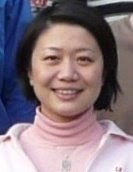====================================================================================
Call for Papers
The Third International Workshop on Story-Telling and Educational Games (STEG 10)
held in conjunction with
The 9th International Conference on Web-based Learning (ICWL 10)
Shanghai, China
December 8-10, 2010
URL: http://www.prolearn-academy.org/Events/steg10
email: steg10@easychair.org
====================================================================================
Aims and Scope
==============
Stories and story-telling are cultural achievements of significant relevance even in modern times. Nowadays, story-telling is being enhanced with the convergence of sociology, pedagogy, and technology. Recently, computer gaming is also deployed for educational purposes and has proved to be an effective approach to mental stimulation and intelligence development. Many conceptual similarities and some procedural correlation exist between story-telling and educational gaming. Therefore these two areas can be clubbed for research on Technology Enhanced Learning (TEL). Many facets of story-telling and educational gaming emulate real life processes, which can be represented either as complex story graphs or as interleaved sub-problems.
While the integration of learning and gaming provides a great opportunity, several motivational challenges must also be addressed to ensure successful realization. Non-linear digital stories are an ideal starting point for the creation of educational games, since each story addresses a certain problem, so that the story recipient can benefit from other users experiences. This leads to the development of more realistic stories providing the kernel for non-trivial educational videogames. These stories cover the instructional part of an educational game, while the game adds the motivation and engagement part.
This workshop aims at bringing together researchers, experts and practitioners from the domains of non-linear digital interactive story-telling and educational gaming to share ideas and knowledge. There is a great amount of separate research in these two fields and the celebration of this workshop will allow the participants to discover and leverage potential synergies.
Workshop Topics
===============
Workshop topics include, but are not limited to:
* Theories in story-telling and games
* Story-telling and educational game design paradigms
* Augmented story-telling and gaming
* Story-telling and educational gaming with social software
* Mobile story-telling and educational gaming
* Cross-media/transmedia story-telling and gaming
* Computer gaming for story-telling (Game design for narrative architectures)
* Multimedia story and game authoring
* Story-telling for creating educational game content
* Story-telling and educational gaming applications
Important Dates
===============
October 8, 2010: Paper Submission
October 22, 2010: Notification of Acceptance
November 12, 2010: Camera Ready Submission
December 8-10, 2010: Workshop Date
Submissions
===========
Authors are invited to submit original unpublished research as full papers (max. 10 pages) or work-in-progress as short papers (max. 5 pages) according to the Springer LNCS format. All submitted papers will be peer-reviewed for originality, significance, clarity and quality. Accepted papers will be published online as part of the CEUR Workshop proceedings series. CEUR-WS.org is a recognized ISSN publication series, ISSN 1613-0073.
To submit your paper please use the STEG submission website hosted at easychair: http://www.easychair.org/conferences/?conf=steg10
Organizers
==========
Yiwei Cao, RWTH Aachen University, Germany
Emmanuel Stefanakis, Harokopio University of Athens, Greece
Stephan Lukosch, Delft University of Technology, the Netherlands
David Farrell, Glasgow Caledonian University, UK
Dominik Renzel, RWTH Aachen University, Germany
Program Committee
=================
Alev Elci (Eastern Mediterranean University, Magusa, North Cyprus)
Amanda Gower (British Telecommunications plc, UK)
Anna Hannemann (RWTH Aachen University, Aachen, Germany)
Bailing Zhang (Victoria University, Melbourne, Australia)
Baltasar Fernández Manjón (Complutense University of Madrid, Madrid, Spain)
Carlos Delgado Kloos (Carlos III University, Spain)
Carsten Ullrich (Shanghai Jiaotong University, Shanghai, China)
Christian Guetl (Institute for Information Systems and Computer Media (IICM), Graz University of Technology, Austria)
Cord Hockemeyer (University of Graz, Graz, Austria)
Eeva Nygren (University of Eastern Finland, Finland)
Georg Thallinger (Joanneum Research, Graz, Austria)
Harald Kosch (University of Passau, Germany)
Helen Ashman (University of South Australia, Australia)
Jose Luis Sierra (Complutense University of Madrid, Madrid, Spain)
Manuel Fradinho (Cyntelix, Ireland)
Marc Spaniol (MPI, Saarbruecken, Germany)
Mathias Lux (Klagenfurt University, Austria)
Michael Granitzer (Know Center, Graz, Austria)
Michael Hausenblas (DERI, National University of Ireland, Galway, Ireland)
Michael D. Kickmeier-Rust (University of Graz, Graz, Austria)
Nalin Sharda (Victoria University, Melbourne, Australia)
Pablo Moreno-Ger (Complutense University of Madrid, Madrid, Spain)
Ralf Klamma (RWTH Aachen University, Aachen, Germany)
Romulus Grigoras (ENSEEIHT, France)
Ronan Champagnat (La Rochelle University, La Rachelle, France)
Stamatia Dasiopoulou (ITI Thessaloniki, Greece)
Stefan Göbel (TU Darmstadt, Darmstadt, Germany)
Vincent Charvillat (ENSEEIHT, France)
Werner Bailer (Joanneum Research, Graz, Austria)
Wolfgang Gräther (Fraunhofer FIT, St. Augustin, Germany)
Subscribe to:
Post Comments (Atom)





No comments:
Post a Comment